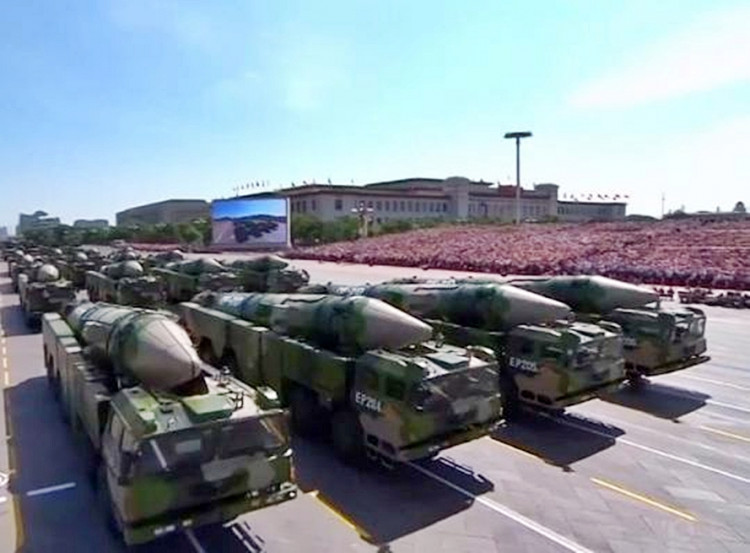The United States will withdraw from the controversial Intermediate-Range Nuclear Forces (INF) Treaty today, paving the way for an arms race that will dramatically increase the number of nuclear missiles deployed in Europe.
The U.S. decision to junk the INF Treaty was first revealed by president Donald Trump in October 2018. Oddly, Trump said the reason he wanted to pull out of the treaty is that it places the U.S. at a huge disadvantage because China isn't covered by a similar accord.
Analysts noted China faces no legal restraints to prevent it from developing intermediate-range nuclear missiles such as the DF-21 ballistic missile with a range of 1,500 km. On the other hand, the treaty does not allow the U.S. to develop new weapons of this class it can deploy against either Russia or China.
In announcing his intent to abandon the INF Treaty, Trump brushed aside the grave peril his decision will have on Europe. The INF treaty required the U.S. and the defunct Soviet Union to cease the development and deployment of all nuclear ground-launched ballistic and cruise missiles with a range of 500 km to 5,500 km.
Specifically, the INF Treaty eliminated all nuclear and conventional missiles (and their launcher) with ranges of 500 to 1,000 kilometers (short-range) and 1,000 to 5,500 km (intermediate-range). The treaty does not cover sea-launched missiles.
The U.S., however, has consistently contended the Soviet Union, and now Russia, are in permanent violation of the INF. The U.S. 2018 Nuclear Posture Review (NPR), assessed that Russia continues to violate a series of arms control treaties and commitments, "the most significant being the INF Treaty."
It said Russia is "either rejecting or avoiding its obligations and commitments under numerous agreements, including...the Presidential Nuclear Initiatives."
Secretary of State Mike Pompeo will announce the U.S. will withdraw from the INF Treaty with Russia. The Trump administration has accused Russia of violating the treaty since 2014. The European Union has also accused Russia of violating the INF.
Pompeo late last year said the U.S. would leave the INF in 60 days if Russia continued to violate the treaty. He was seconded by Trump.
Pompeo's announcement will trigger a 180-day timeline for the U.S. withdrawal, which can be stopped if Russia stops its INF violations. In December 2018, Russian President Vladimir Putin said that if the U.S. leaves the treaty and begins to construct weapons, Russia will also begin production.






